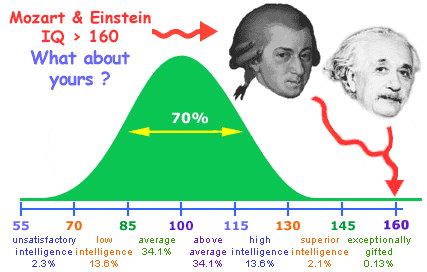Severe malnutrition and other impoverished conditions that children endure for an extended period during their early years can lead to long-term consequences for their cognitive development as they grow up, according to the results of a new study.
Children who experience such circumstances for more than 6 months after birth have lower IQ scores by age 11, even if they have escaped poverty for over 7 years, according to a report from a research team from the UK and the US.
 |
(Image: mini-iq) |
The research team based their study on surveys of 131 Romanian children who lived in extremely deprived conditions in state-run orphanages until the fall of the Ceaușescu regime in the late 1980s, after which they were adopted by families in the UK and Canada.
These children were categorized based on their age at adoption: those adopted before 6 months, between 6 to 24 months, and from 24 to 43 months – compared to 50 children born in the UK and adopted when they were 6 months or younger.
Previous studies on Romanian children—who typically entered orphanages as newborns—showed that those adopted before the age of 6 months had IQ levels comparable to children born in the UK, while those adopted later had lower IQ scores.
However, researchers found that the majority of children adopted later than 6 months could potentially “catch up” in cognitive development by the time they reached 4 or 6 years old. Yet, they aimed to investigate whether this catch-up could be maintained when the children turned 11.
They found that the children with the lowest IQ scores at age 6 (often those adopted the latest) showed that they could “catch up” in cognitive development between ages 6 and 11.
“The most severely affected children continue to make progress over a long period and may catch up with their less severely affected peers,” said Dr. Celia M. Beckett from King’s College in London, UK, in a statement to Reuters.
However, these children, along with others adopted later, continued to show significantly lower intellectual development by the age of 11, Dr. Beckett and colleagues stated in a report published in the journal Child Development.
They wrote: “For adopted children, the window of opportunity for cognitive development appears to be wider between ages 6 and 11 compared to at age 6, but the persistent developmental delays indicate that there are limits.”
However, the detrimental effects of deprivation were only evident for children who had lived in orphanages for 6 months or more. There were no “measurable effects” noted in children who lived in orphanages for less than 6 months, the researchers observed.
Notably, children adopted after 6 months had IQ scores that were 15 points lower than those adopted earlier. However, IQ scores were nearly identical for children adopted later, regardless of whether their age ranged from over 6 months to 42 months.
According to Dr. Beckett, “living for more than 6 months in a severely deprived environment is a factor that affects later cognitive development, but the impact does not increase when deprivation lasts beyond two years.”
She added that “educators need to be aware of the long-term consequences of early childhood deprivation to respond to their educational needs.”

(Image: iqtestnow)




















































